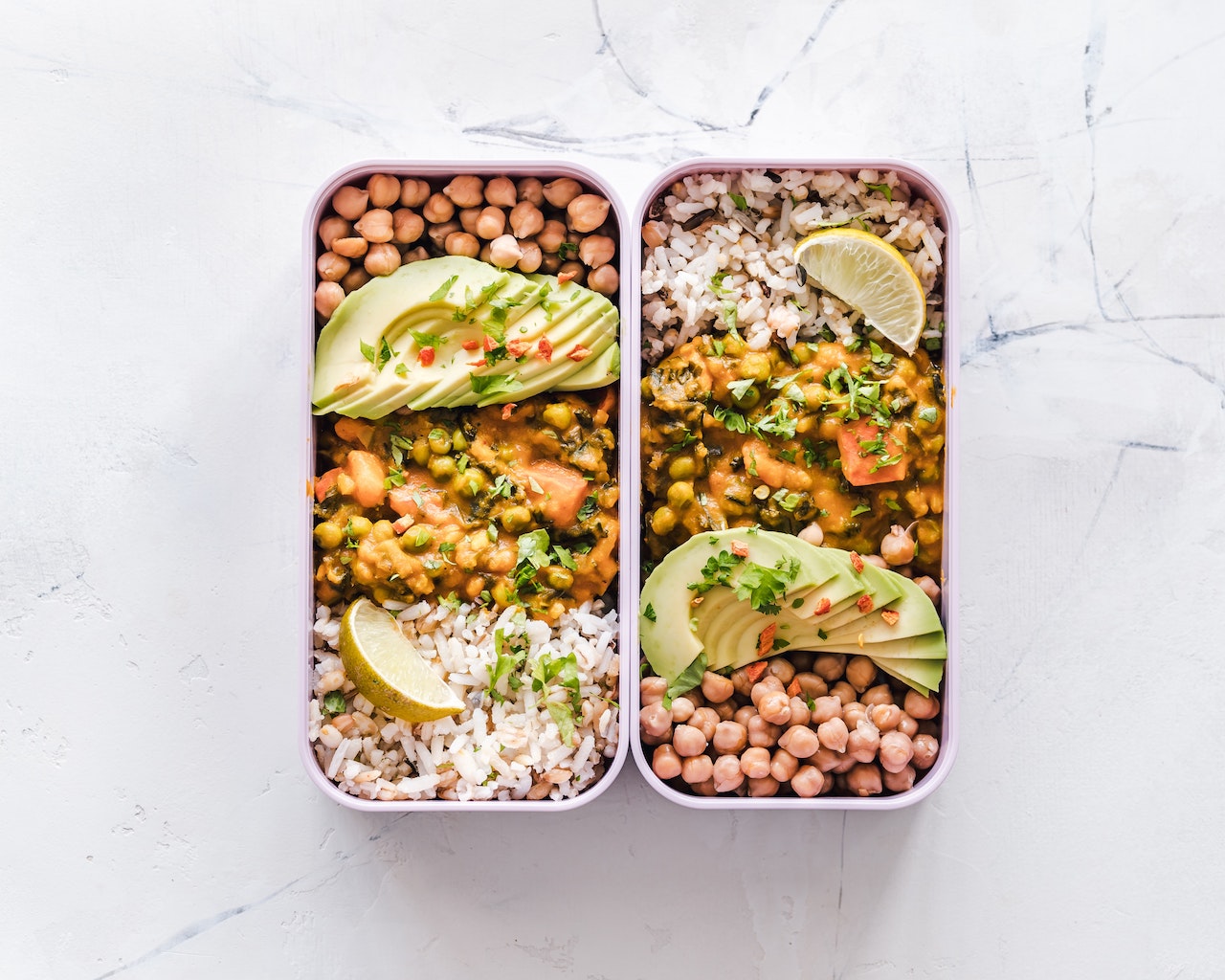I often get asked for plant-based sources of protein ideas, which can easily be incorporated into the diet by those looking to adopt a flexitarian diet. While there are some obvious ones such as tofu and legumes, there are also some more surprising plant-based protein picks. I have included a list below in case you too, want to vary your diet with some more plant-based sources of protein.
Simple plant-based source of protein
Chickpeas (cooked): 1 cup = 13g protein (NB: other legumes will have a similar value)
Uses: blend into hummus/dips, add to stir-fry’s, curries, salads and soups.
Tofu (hard): 100g = 12g protein
Uses: cut into cubes or strips and stir-fry or add to curries, simply toss in a bit of soy sauce and sesame oil and bake – add to salads or serve with some vegetables and cooked grains.
Edamame beans: 2/3 cup (85g) = 11g protein
Uses: great as a simple snack, add to lunchboxes, toss in to salads and stir-fry’s.
Hemp seeds: 30g = 9g protein
Uses: blend into smoothies, dips, dressings/sauces, use to top muesli/porridge or sprinkle on salads and roasted vegetables.
Greens peas (boiled): ½ cup = 8g protein
Uses: blend with olive oil and feta as a yummy mash or dip or put into stews and curries.
Freekeh (cooked): 100g = 7g protein
Uses: boil and eat as per usual grains, add to salads, serve with curries and stews, top with yoghurt and poached fruit as a warming breakfast or make into a pilaf.
Chia seeds: 30g = 6g protein
Uses: make into a chia pudding for a breakfast or snack, use in porridge, add to smoothies or sprinkle on dishes for some crunch.
Cashew nuts (raw): 30g = 5g protein
Uses: eat as a snack, add to salads, make into dressings and dips.
Tahini paste: 25g = 5g protein
Uses: add to hummus or other dips, make into dressings or add to soups for extra creaminess.
Falafel: 1 large (40g) = 4g protein
Uses: serve with hummus as a snack, crumble through salads or add to wraps/sandwiches.
Sweet potato: 1 medium (115g) = 4g protein
Uses: mash with coconut milk as a nice side, roast and add to salads, add to curries and stews.
Broccoli (boiled): ½ cup = 4g protein
Uses: steam and serve as a dinner side, add to curries/stir-fry’s, steam and mash into patties.
Quinoa (cooked): 100g = 4g protein
Uses: use as the grain component of dishes, toss through scrambled eggs or add to frittata mixes.
LSA: 12g = 3g protein
Uses: add to smoothies, use to top porridge/muesli, add to banana pancakes or mix with yoghurt and grated pear as a fibre rich snack.
How do these plant-based sources of protein, compare to animal sources?
Steak (grilled): 100g = 32g protein
Salmon (grilled): 100g = 24g protein
Chicken breast (raw): 100g = 23g protein
Tuna: small can (65g) = 16g protein
Yoghurt (natural): 200g = 12g protein (this figure will increase if it’s a high protein yoghurt)
Milk (full cream): 1 cup = 9g protein
Feta cheese: 30g = 5g protein
Egg (hard boiled): 1 large = 5g protein
As you can see, in some instances, plant-based sources of protein can have less protein compared to animal sources, so a good trick is combining a few different foods from the plant-based list at each meal. For example a salad with falafel, freekeh and tahini dressing.
NB: all values are approximate and will vary between brands.
